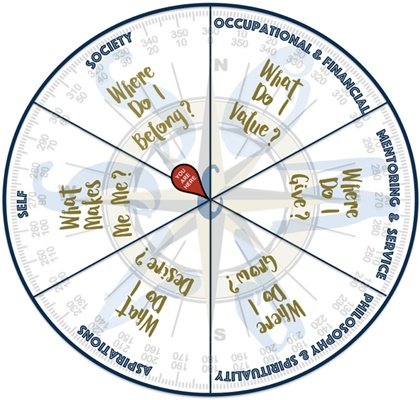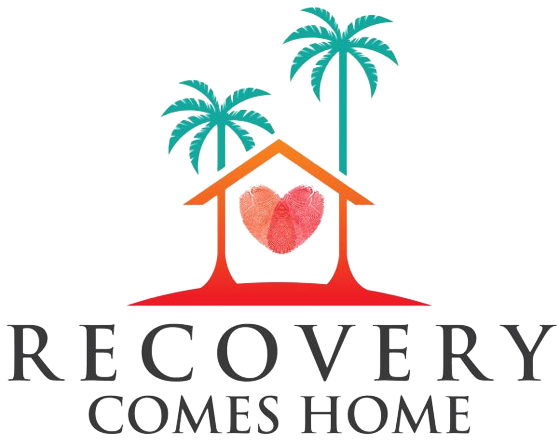Recovery Comes Home Program
The Recovery Comes Home program is designed to support individuals in recovery as they transition from treatment back into everyday life. This program offers a comprehensive approach, providing the necessary tools, guidance, and community support to help maintain long-term recovery at home.
Structured Support
A step-by-step plan to help integrate recovery principles into daily routines, ensuring a smoother transition from treatment back into the local community.
Personalized Guidance
Tailored strategies and resources to meet each individual’s specific needs in recovery, whether you need extra support at home or a reset in your journey.
Community and Accountability
A focus on building a strong support system through group engagement and ongoing mentorship, helping individuals stay on track with their recovery goals.
Holistic Approach
Addressing physical, emotional, and mental health through a balance of self-care practices, therapy, and peer support to promote overall well-being.
The program emphasizes the importance of sustainable recovery by providing a safe, structured, and supportive environment where individuals can continue to grow and heal long after treatment.
How do we go about making this happen virtually?
The Recovery Compass
Our Recovery Compass guides you through the first year of recovery.
Circling the compass twice during the year.

Circumstances (Assessment)
Occupation & Financial
Mentoring & Service
Philosophy & Spirituality
Aspirations & Values
Self (Concept & Direction)
Societal Involvement
The Perpetual Wheel of Self Development
The C is for Circumstances
Here we take a thorough assessment and determine your biopsychosocial history.
It’s important to be as honest and complete as you can so we can best assist you!

ABOUT THE ASSESSMENT
A two hour assessment via Zoom to determine the level of appropriate care. It will include:
- Drug/Behavior of Choice
- Questions about previous treatment admissions
- Prior recovery residence experience
- Physical, Mental, Emotional and Spiritual Condition
- Co-Occurring Disorders
- A Detailed Plan of Where You Are and Where You’re Going
- Motivation and Readiness To Change
- Cultural and Spiritual Considerations
The O is for Occupation & Finances
The first time through the Recovery Compass we will focus on getting and keeping a job.
During month seven we will be discussing long-term employment and budgeting.

ABOUT OCCUPATION & FINANCES
Here we will discuss employment issues, creating a budget and planning for the future. Sample topics include:
- Employment Readiness/Job Skills
- Resume writing, especially where there are gaps
- Skills Assessment
- Getting a Checking & Savings Account
- Rebuilding Credit/Staying Out of Debt
- How To Make a Budget & Stick With It
The M is for Mentoring/Service
The 2nd month we will focus on how to look for and secure a mentor, and begin to do service work.
During month eight we will be adding additional mentors and expecting that you step up service.

ABOUT MENTORING & SERVICE
Another important step on the road to recovery is mentoring and service. Someone with one day can help the person just walking through the door. Since sponsorship is so vital, we will spend most of this section discussing issues such as:
- What do I look for in a mentor?
- What kind of things will I do with a mentor?
- Where do I look for a mentor?
- What types of service are available to me?
The P is for Philosophy & Spirituality
Delve into ways to continue to evolve as a healthy person in recovery, and finding a community of like-minded individuals.

ABOUT PHILOSOPHY & SPIRITUALITY
Finding a power greater than yourself is an important step to take during the recovery process. Addiction is a spiritual problem and requires a spiritual (not religious) solution. Here are some ways to connect:
- Meditation & Prayer
- A Journaling Practice
- Listen to Uplifting Music
- Join a Spiritual Community
- Develop a Rule of Life
The A is for Aspirations/Values
Know thyself. Figure out what are the most important priorities in your recovery and life’s journey. Self-discovery is always the best.

ABOUT ASPIRATIONS & VALUES
xxx:
- xxx
The S is for Self Regulation
Gain the ability to manage and control emotions, behaviors, and impulses in order to achieve goals and respond appropriately to different situations.

ABOUT SELF REGULATION
xxx:
- xxx
The S is for Societal Interactions
Social anxiety, rejoining and interacting with groups can be difficult at first. But with assistance, meaningful friendships can begin within recovery support groups and expand into non-recovery based arenas.

ABOUT SOCIAL INTERACTIONS
xxx:
- xxx
The Program in Action
Initial Comprehensive Assessment
M-F Morning Meditation
Weekly 1:1 Calls With Client
2x Weekly Group Trainings
2x Monthly Team Group Calls
Midway Assessment Check-In

Morning Meditation
Monday – Friday From 8:00 – 8:30
Start the day off right with a reading on recovery and discussing it in a group setting. Lay out plans for the day.

1:1 Connection Calls
Once time per week for one hour
Twice per month with the Team
Program Schedule and Costs
3, 6, 9 or 12 month Commitments
All time commitments will go around the Recovery Compass twice, with an additional assessment at the halfway point.
Cost depends on length of commitment; 3 months is $2497, 6 months is $4597. 9 months is $6597, 12 months is $7597.
Payment is by the month, or a 10% discount if paid in full.
